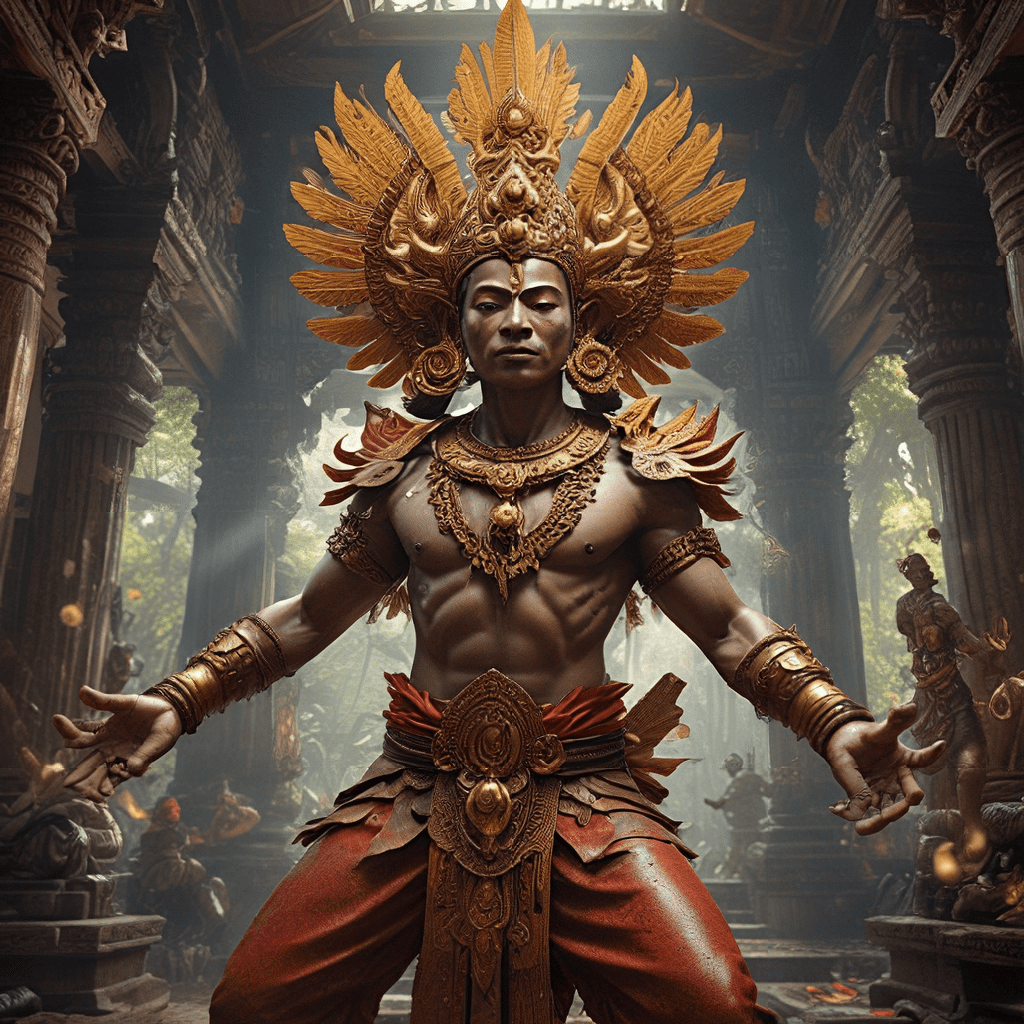The Divine Sword of Daejanggeum: A Mythical Weapon in Korean Folklore
In the rich tapestry of Korean folklore, legends abound, weaving tales of mythical creatures, powerful magic, and extraordinary heroes. Among these stories, one particularly captivating myth centers around the Divine Sword of Daejanggeum, a legendary weapon said to possess immense power and divine origins. This article delves into the captivating world of this mythical sword, exploring its origins, significance, and its enduring influence on Korean culture.
The Legend of the Divine Sword
The legend of the Divine Sword of Daejanggeum, also known as the "Sword of the Great Female Chef," is a compelling tale steeped in both historical and mythical elements. The sword is described as an ethereal weapon, forged from the purest celestial iron and imbued with divine power. It is said to have been bestowed upon Daejanggeum, a legendary figure in Korean history revered for her culinary skills and unwavering loyalty.
The myth recounts that Daejanggeum, a woman of exceptional talent and virtue, served as a royal chef during the Joseon Dynasty. Her culinary creations were known for their exceptional flavor and healing properties, earning her the respect and admiration of the king and the entire kingdom. However, Daejanggeum's life was not without its challenges. She faced betrayal and adversity, her integrity and abilities constantly tested.
The Sword’s Origins and Significance
The Divine Sword's origins are shrouded in mystery and myth. Some versions of the legend suggest that the sword was a gift from the gods, bestowed upon Daejanggeum as a symbol of her divine favor and the extraordinary strength she possessed. Others claim that the sword was forged by a skilled blacksmith, guided by the spirits of ancient heroes and infused with their power.
The sword's significance lies in its symbolic representation of Daejanggeum's unwavering spirit and her ability to overcome adversity. The sword is not merely a weapon but a manifestation of her unwavering moral compass and the strength she derived from her righteous path. It is a symbol of her courage, determination, and the unwavering belief in her own abilities.
The Divine Sword in Korean Folktales
The Divine Sword of Daejanggeum features prominently in numerous Korean folktales, often serving as a plot device and a symbol of hope and justice. In these tales, the sword is depicted as a powerful instrument of protection, capable of dispelling evil and restoring balance to the world. It is often used to defend the innocent, punish the wicked, and ensure the triumph of good over evil.
One particularly popular folktale tells the story of Daejanggeum using the Divine Sword to thwart a plot against the king. A treacherous advisor, driven by envy and greed, seeks to usurp the throne. Daejanggeum, sensing the evil intentions of the advisor, confronts him using the Divine Sword, exposing his treachery and saving the kingdom from chaos. This tale underscores the sword's symbolic significance as a protector of justice and upholder of truth.
The Sword as a Symbol of Power and Justice
The Divine Sword of Daejanggeum is not merely a physical weapon but a powerful symbol of power and justice. It represents the strength of spirit, the courage to stand up for what is right, and the unwavering belief in one's own abilities. The sword serves as a reminder that even in the face of insurmountable odds, individuals can use their strength, intelligence, and unwavering spirit to overcome any obstacle.
It is important to note that the Divine Sword of Daejanggeum is not merely a symbol of physical power. It also represents the power of knowledge, wisdom, and the ability to use one's talents for the good of others. In the folktales, Daejanggeum's culinary skills are often depicted as extensions of her divine power, enabling her to heal the sick, nourish the hungry, and bring joy to others. This reinforces the concept that true power lies not only in physical strength but also in the ability to use one's knowledge and talents for the betterment of society.
The Sword’s Connection to the Historical Figure Daejanggeum
While the Divine Sword of Daejanggeum is firmly rooted in myth and folklore, its connection to the historical figure Daejanggeum adds a layer of intrigue and complexity. Daejanggeum, whose real name was Jang Geum, was a real person who served as a royal chef during the Joseon Dynasty (1392-1910). Her story, documented in historical records, highlights her incredible culinary skills, resilience, and unwavering dedication to her craft.
Though we know Jang Geum existed, the details of her life are limited, and the myth of the Divine Sword adds a fictional element to her story. It's important to note that there is no historical evidence to suggest that Jang Geum ever possessed a magical sword. However, the myth likely arose due to the powerful symbolism surrounding her life and legacy.
Jang Geum's story resonated with Koreans and became a symbol of perseverance, resilience, and the pursuit of excellence. The myth of the Divine Sword, a symbol of power and justice, likely emerged as a way to elevate Jang Geum's story and celebrate her achievements. The sword became a powerful metaphor for her determination to overcome adversity and rise to prominence in a male-dominated society.
The Mythological Framework of the Divine Sword
The Divine Sword of Daejanggeum fits seamlessly into the broader framework of Korean mythology. Korean mythology is rich with tales of mythical creatures, divine beings, and powerful artifacts. These tales, often passed down orally through generations, reflect Korean cultural beliefs, values, and aspirations.
The Divine Sword, with its celestial origins and supernatural powers, embodies the supernatural world that exists alongside the human world in Korean mythology. This belief in the interconnectedness of the divine and the earthly is prevalent in many Korean myths, where gods and goddesses interact with humans, influencing events and shaping lives.
The sword's association with Daejanggeum, a figure revered for her culinary skills and ethical values, reinforces the Korean concept of harmony between the physical and spiritual realms. This belief sees human achievements as reflections of divine favor and blessings. By attributing the sword to Daejanggeum, Korean folklore elevates her to the status of a mythical hero, embodying the virtues of righteousness, courage, and resilience that are deeply valued in Korean culture.
The Divine Sword as a Metaphor for Korean Identity
The Divine Sword of Daejanggeum, beyond its individual symbolism, also serves as a powerful metaphor for Korean identity. The sword's mythical origins and extraordinary powers symbolize Korean resilience and determination. The legend, passed down through generations, reinforces a sense of national pride and unity. It reflects the enduring spirit of the Korean people, their ability to overcome adversity, and their unwavering belief in their own strength and potential.
The sword also reflects the Korean appreciation for culinary arts and the significance of food in Korean culture. The Divine Sword's association with Daejanggeum, a legendary chef, highlights the importance of food as a source of nourishment, healing, and community in Korean culture. In Korean folklore, food is often imbued with magical qualities, capable of restoring harmony and balance. The Divine Sword, as an extension of Daejanggeum's culinary prowess, reinforces this notion, suggesting that food can be a powerful force for good.
Theories on the Origins of the Divine Sword Myth
The exact origins of the Divine Sword myth remain shrouded in mystery. However, several theories offer insights into its emergence and evolution. One theory suggests that the myth originated as a way to elevate Daejanggeum's historical status and celebrate her achievements. As a woman who rose to prominence in a male-dominated society, her story resonated with Koreans, and the myth of the Divine Sword may have been created to emphasize her exceptional abilities and unwavering spirit.
Another theory proposes that the myth emerged as a reflection of Korean cultural beliefs and values. The sword's symbolic representation of power, justice, and resilience aligns with deeply held Korean cultural beliefs in the importance of righteousness, integrity, and the strength of the human spirit. The myth may have evolved as a way to embody these values through a captivating and enduring story.
The Divine Sword’s Enduring Influence on Korean Culture
The Divine Sword of Daejanggeum continues to exert a profound influence on Korean culture. The legend, passed down through generations, has captured the imagination of Koreans, inspiring countless works of art, literature, and even a popular historical drama series. The sword's enduring legacy speaks to the power of myth to shape cultural identities, inspire creativity, and reflect shared values.
The Divine Sword remains a potent symbol of Korean resilience, determination, and the pursuit of excellence. It serves as a reminder of the strength of the human spirit, the importance of justice and integrity, and the enduring power of myth to inspire and shape a nation's identity.
FAQ
Q: Is the Divine Sword of Daejanggeum a real object?
A: No, the Divine Sword of Daejanggeum is a mythical object, a creation of folklore and legend. There is no historical evidence to suggest that it ever existed.
Q: How does the Divine Sword connect to the real-life figure of Daejanggeum?
A: Daejanggeum, whose real name was Jang Geum, was a real royal chef during the Joseon Dynasty. The Divine Sword's connection to her is symbolic, representing her resilience, courage, and dedication to her craft. The myth likely arose from her inspiring story as a woman who rose to prominence in a male-dominated society.
Q: What is the significance of the Divine Sword in Korean culture?
A: The Divine Sword represents Korean resilience, determination, and the pursuit of excellence. Its legendary status reflects the enduring spirit of the Korean people and their shared beliefs in righteousness, justice, and the importance of the human spirit.
Q: What are some other examples of mythical weapons in Korean folklore?
A: Korean folklore features several mythical weapons, such as the magical "Geumgang Sword" (Diamond Sword) and the “Najeon Sword” (Mother of Pearl Sword), both said to possess incredible power and be able to defeat evil forces. These weapons, like the Divine Sword of Daejanggeum, embody Korean cultural values and aspirations.



